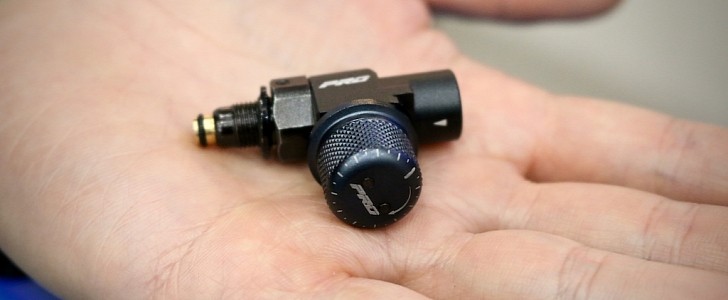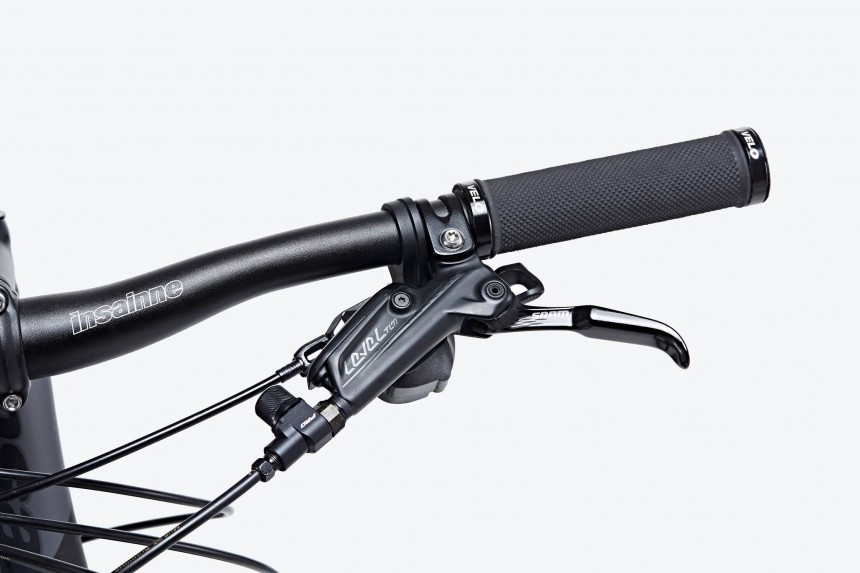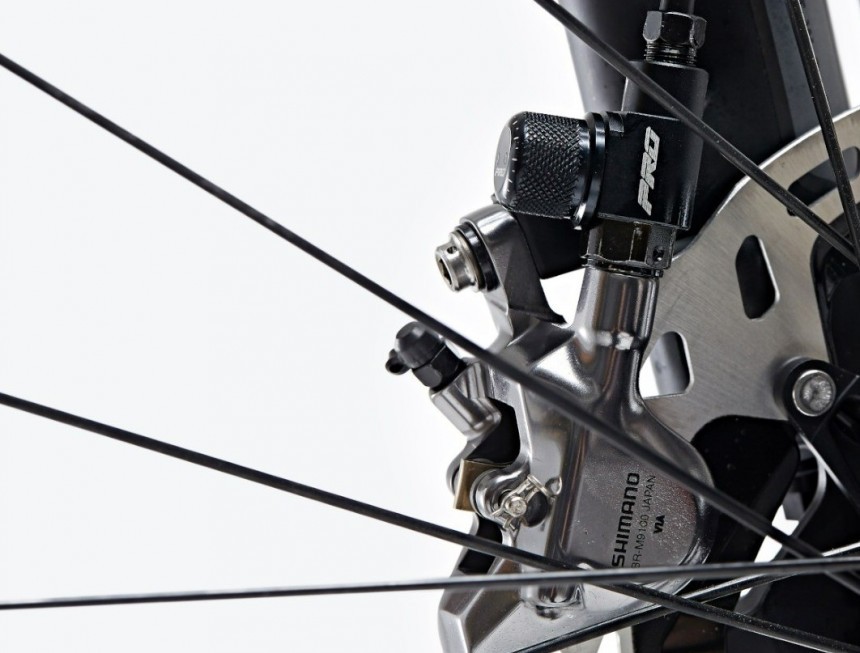I recently wrote an article about how Bosch has been developing ABS for e-bikes, and that got me thinking: is there no one else developing such systems? Frankly, the world is a big place, and other manufacturers are developing ABS for all sorts of bikes.
Folks, ABS for e-bikes or bicycles seems like something that could be considered unnecessary. However, if you've ever ridden a bike equipped with hydraulic brakes that are working under peak performance, you better know how to "feather" them; otherwise, you'll have scorpion written all over you.
To ensure that cyclists are as safe as possible as they run down treacherous terrains or even through city streets, manufacturers have been looking at the braking system as a whole and how to prevent your brakes from locking up under certain conditions. Your safety sparked the trinket we'll be looking at today, Outbraker's ABS.
Now, other ABS systems exist out there, and one team that has been developing such a trinket is Bosch. However, today we'll be looking at a system unlike the one created by Bosch. It works on the exact same principles as the one from Bosch, minus the electrical power and cluttered handlebar, simply by controlling the pressure in your lines. By the looks of it, Bosch may have some competition as this system comes off smaller and is just as sufficient.
Folks, Outbraker is a crew that seems to have popped up overnight, and all I was really able to find out about the crew is that they seem to be working out of Spain. But, no matter how little we know about the crew, it, in no way, diminishes the system(s) they've developed.
Just to kick things off, let me point out that this ABS will run you no more than 149 EUR (165 USD at current exchange rates) without any specific adapters to your existing brakes setup. If the braking manufacturer you already use doesn't fit with Outbraker's system, they also offer an array of adapters for around 30 EUR (33 USD) more, so still under 200 EUR (220 USD) for an ABS system.
The way the system works is rather simple. All it does is control the pressure that is applied to your brakes. Best of all, this pressure is entirely in your control. No longer will your piston flood your brakes lines with pressure; you control how much is applied to your brakes and even when.
To get a better understanding of how it works, let's create an imaginary scenario. You're riding along on some trail, and a fearless squirrel jumps into your path. With brakes suddenly pumped to the max, depending on the adjustments you've chosen before riding, the ABS will control your pads by limiting the amount of pressure allowed to enter the lines in the first place. Pretty simple if you ask me.
At this time, Outbraker offers two different sets of ABS, one for MTBs and one for road bikes. The manufacturer also mentions that Shimano, Sram, and Tektro are manufacturers to which the system fits with no adapters. For teams like Hayes, Magura, and others, you'll need the adapters. It should help to know that some of the systems function while being attached to your bike's lever, while others, directly to the caliper.
Honestly, there isn't much else to say. Maybe the fact that each system weighs no more than 25 grams, features an easy-to-use click setting with a range from 0% to 100% resistance, and is suitable with synthetic and mineral oils. As a little sidenote, Outbraker also has a kit that provides control over both brakes with just one hand, yes, with ABS in the mix too.
One thing to consider is that braking also has a lot to do with the level of grip you have with the surface you're traveling on. This means that if you're riding along dialed in for asphalt, once you ride into loose or possibly leaf-littered surfaces, you will need to manually adjust the amount of pressure the ABS controls before switching terrains; an electronic system does all this on its own and is one of the reasons why Bosch's ABS is priced at around 500 EUR (552 USD).
At the end of the day, ABS for your bike seems to be more of a luxury. Why? Simply because manufacturers seem to be neglecting the use of cable-driven brakes. I use this brake style, yes, even with discs; locking up my front wheel only depends on how far back I pull my lever or improper braking techniques.
To be honest, riding along at 30 mph (48 kph) and hitting that front brake like you don't have a rear brake can be considered a noob move. But, if you want to take the worry out of that sort of situation, consider ABS systems for your hydraulic brakes.
To ensure that cyclists are as safe as possible as they run down treacherous terrains or even through city streets, manufacturers have been looking at the braking system as a whole and how to prevent your brakes from locking up under certain conditions. Your safety sparked the trinket we'll be looking at today, Outbraker's ABS.
Now, other ABS systems exist out there, and one team that has been developing such a trinket is Bosch. However, today we'll be looking at a system unlike the one created by Bosch. It works on the exact same principles as the one from Bosch, minus the electrical power and cluttered handlebar, simply by controlling the pressure in your lines. By the looks of it, Bosch may have some competition as this system comes off smaller and is just as sufficient.
Just to kick things off, let me point out that this ABS will run you no more than 149 EUR (165 USD at current exchange rates) without any specific adapters to your existing brakes setup. If the braking manufacturer you already use doesn't fit with Outbraker's system, they also offer an array of adapters for around 30 EUR (33 USD) more, so still under 200 EUR (220 USD) for an ABS system.
The way the system works is rather simple. All it does is control the pressure that is applied to your brakes. Best of all, this pressure is entirely in your control. No longer will your piston flood your brakes lines with pressure; you control how much is applied to your brakes and even when.
To get a better understanding of how it works, let's create an imaginary scenario. You're riding along on some trail, and a fearless squirrel jumps into your path. With brakes suddenly pumped to the max, depending on the adjustments you've chosen before riding, the ABS will control your pads by limiting the amount of pressure allowed to enter the lines in the first place. Pretty simple if you ask me.
Honestly, there isn't much else to say. Maybe the fact that each system weighs no more than 25 grams, features an easy-to-use click setting with a range from 0% to 100% resistance, and is suitable with synthetic and mineral oils. As a little sidenote, Outbraker also has a kit that provides control over both brakes with just one hand, yes, with ABS in the mix too.
One thing to consider is that braking also has a lot to do with the level of grip you have with the surface you're traveling on. This means that if you're riding along dialed in for asphalt, once you ride into loose or possibly leaf-littered surfaces, you will need to manually adjust the amount of pressure the ABS controls before switching terrains; an electronic system does all this on its own and is one of the reasons why Bosch's ABS is priced at around 500 EUR (552 USD).
At the end of the day, ABS for your bike seems to be more of a luxury. Why? Simply because manufacturers seem to be neglecting the use of cable-driven brakes. I use this brake style, yes, even with discs; locking up my front wheel only depends on how far back I pull my lever or improper braking techniques.
To be honest, riding along at 30 mph (48 kph) and hitting that front brake like you don't have a rear brake can be considered a noob move. But, if you want to take the worry out of that sort of situation, consider ABS systems for your hydraulic brakes.












